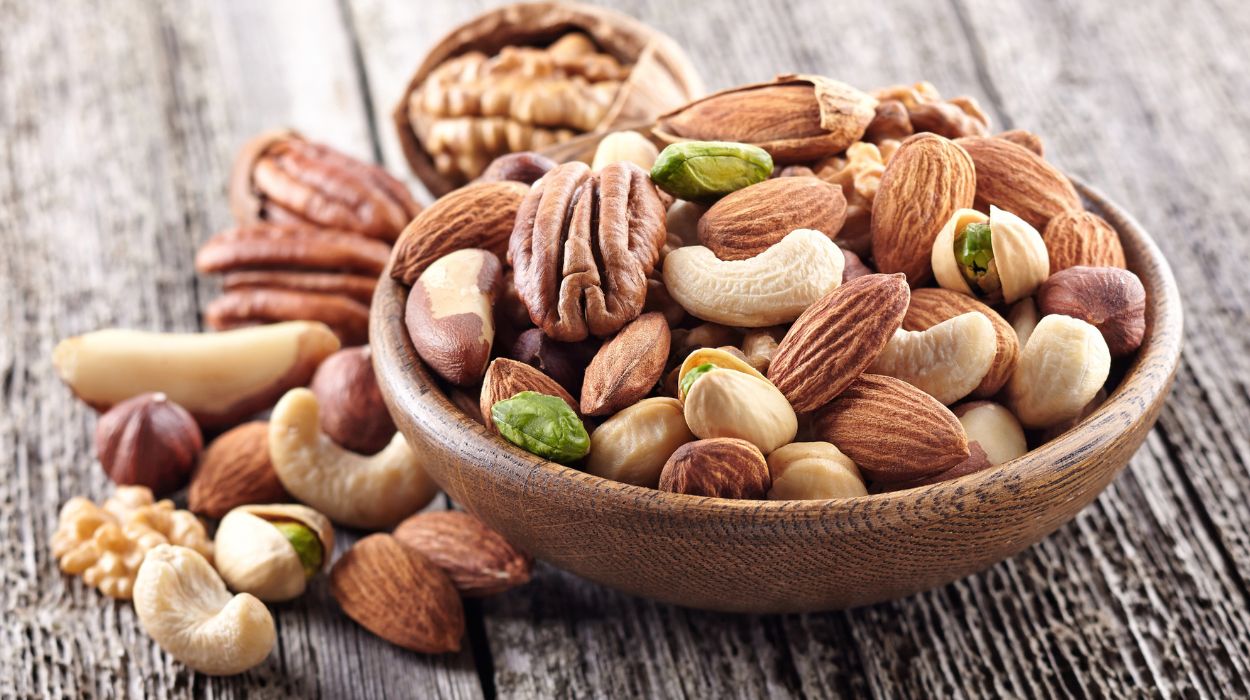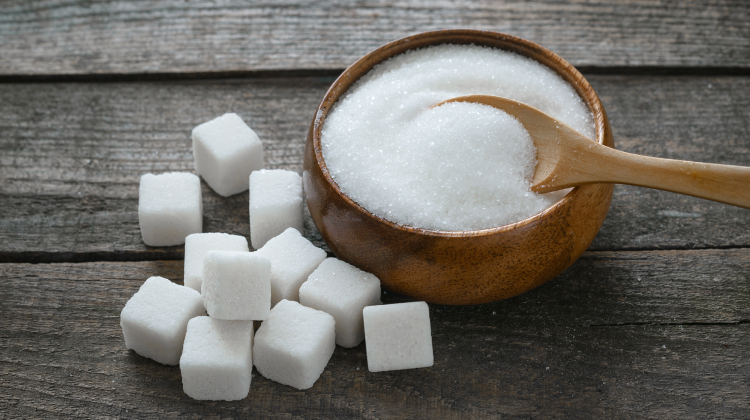 Expert's opinion
Expert's opinion
Expert's opinion
The article is a subjective view on this topic written by writers specializing in medical writing.
It may reflect on a personal journey surrounding struggles with an illness or medical condition, involve product comparisons, diet considerations, or other health-related opinions.
Although the view is entirely that of the writer, it is based on academic experiences and scientific research they have conducted; it is fact-checked by a team of degreed medical experts, and validated by sources attached to the article.
The numbers in parenthesis (1,2,3) will take you to clickable links to related scientific papers.
8 Superfoods For Liver 2024: Top Foods For Healthy Liver

The liver is an amazing organ. It regulates chemicals in the body, carries away harmful toxins, and breaks down, balances, and creates nutrients. The liver is responsible for over 500 separate roles within the body. As the liver is responsible for many different functions, it can become over-taxed, leading to chronic conditions like non-alcoholic fatty liver disease. Many superfoods can help support the liver in all of its jobs.
Read on to see the top eight superfoods for liver health.
8 Super Foods For Liver
- Grapefruit
- Cruciferous vegetables
- Nuts
- Fatty fish
- Berries
- Green tea
- Olive oil
- Coffee
8 Best Superfoods For Liver Health
The liver does a great job of handling a lot of responsibility. However, the following foods can support a healthy liver and give it a much-needed rest.
Grapefruit

Grapefruit is very good for your liver. It contains two unique antioxidants that help to safeguard your liver by reducing inflammation.
For example, a recent study[1] suggested that naringin (one of the antioxidants found in grapefruit) may hinder alcoholic-induced fatty liver disease and damage. It is said to do this by reducing oxidative damage, the amount of fat build-up, and stress put on the liver.
Oxidative stress occurs when there are too many free radicals in your body. Free radicals are unstable molecules in our environment.
If your body is under oxidative stress, it can cause many diseases like diabetes, cancer, and heart disease. Antioxidants are beneficial in fighting free radicals and, thus, oxidative stress.
The antioxidants in grapefruit can also help prevent[2] hepatic fibrosis, which is when excessive connective tissue builds up in the liver. This typically results from chronic inflammation.
There haven’t been any studies on humans concerning naringin and its ability to help the liver. However, in animal studies[3], naringin was able to speed up the metabolism of alcohol and also neutralize some of its adverse outcomes.
Of note, grapefruit and grapefruit juice can interact with certain medications. Therefore, ask your healthcare provider before you add grapefruit to your diet.
Cruciferous Vegetables
The cruciferous vegetable is a generic term relating to a diverse group of vegetables. These vegetables come in different shapes and sizes, but all have four leaves and come from the cabbage family.
Some examples of cruciferous vegetables include arugula, broccoli, brussels sprouts, cabbage, cauliflower, and kale.
Even though these vegetables may all look different, they all are very high in similar nutrients
- Folate
- Vitamin K
- Vitamin A
- Vitamin C
- Phytonutrients
- Fiber
This incredible array of nutrition isn’t all that is found in cruciferous vegetables. They also contain a compound called indole-3-carbinol, which helps support your liver.
Indole-3-carbinol has been studied[4] and proven to be an effective helper of the liver as it activates liver enzymes that aid in detoxification. Therefore, cruciferous vegetables are one of the best detox foods for your liver.
Nuts

Many nuts such as cashews, almonds, and macadamia nuts are all loaded with unsaturated fats, vitamin E, protein, and fiber. All these benefits make them an excellent choice for liver and heart health and maintaining blood sugar levels.
This study[5] found that a diet higher in nuts was associated with a lower risk of non-alcoholic fatty liver disease in men.
Also, a meta-analysis[6] of the Mediterranean diet found that consuming nuts (alongside a Mediterranean diet) aided in healthier blood sugar levels and weight maintenance. This is believed to be linked to the high fiber and unsaturated fat content of the Mediterranean diet.
Healthy blood sugars help lessen[7] the burden on your liver because the liver acts as the body’s natural glucose reserve. The liver is constantly working to keep your blood sugar levels sustained.
It also stores and produces glucose (blood sugar) depending on your body’s requirements. If you can stabilize your sugars by what you eat, this lessens the liver burden and it doesn’t have to work as hard.
Fatty Fish
The benefits of fatty fish and heart disease are well known. But, it isn’t just helpful for your heart. Fatty fish can also help your liver. This is because of their high omega-3 fatty acid content. These are healthy fats that reduce inflammation content in the whole body, including in your liver.
This journal article[8] analyzed ten studies on the effects of omega-3 fatty acid supplementation and its ability to
- Lower fat in the liver
- Lower triglyceride levels
- Increase high-density lipoproteins (good cholesterol)
- Lower low-density lipoproteins (bad cholesterol)
The results of the analysis showed that supplementation of omega-3 fatty acids was able to protect the body against fatty liver disease and help improve all lipid levels. The mechanism is thought to be due to its ability to reduce inflammation in the liver.
Examples of fatty fish high in omega-3 fatty acids are
- Anchovies
- Arctic char
- Bluefin tuna
- Black cod
- Canned tuna
- Cobia
- Herring
- Mackerel
- Sardines
- Striped bass
- Whitefish
- Wild Salmon
Berries

Berries are full of anthocyanins, a class of flavonoids containing powerful antioxidants. As discussed previously, antioxidants guard and decrease the effect of free radicals and inflammation in the liver.
This study[9] noted that a high intake of flavonoids was associated with a lower advancement of non-alcoholic fatty liver disease.
Another study[10] also showed a good correlation between cranberry flavonoids and the prevention of toxic liver injury and liver mitochondria damage in mice. Unfortunately, more human research is needed to prove this correlation between cranberries and liver health.
Green Tea
Green tea is one of the most favored drinks in the world. It has been used for many years in Chinese medicine as it is believed to have multiple health benefits, from weight loss to diuretics, and to prevent and treat many diseases.
There is also a correlation between green tea and reduced risk of liver cancer and non-alcoholic fatty liver disease. This study[11] gave participants 500 mg of green tea extract and measured different liver function tests.
At the end of 12 weeks, the group that received the green tea extract showed a significant reduction in their liver function tests, indicating improved liver function. Another meta-analysis[12] showed a significant correlation between the patients who consumed larger amounts of green tea and a decreased risk for liver cancer.
Olive Oil

Much like the other foods on this list, olive oil is a healthy fat that benefits the body by fighting oxidative damage. In addition, olive oil contains polyphenols, plant compounds packed with antioxidants. Polyphenols[13] also hinder bad cholesterol from forming while helping your good cholesterol.
Since olive oil raises and helps your good cholesterol, it has protective benefits for your liver. Olive oil can protect against the development of fatty liver disease and is beneficial for your heart as well.
Coffee
Drinking coffee protects the liver from disease and lowers your risk of liver cirrhosis and cancer. Researchers completed a systematic review[14] on the benefits of coffee and liver patients. Coffee consumption was associated with improved blood markers concerning liver tests.
Also, coffee consumption was related to a decreased risk of disease progression in chronic liver disease patients.
Coffee contains lots of antioxidants that help neutralize free radicals in the body. It also helps to prevent fat build-up by aiding in toxin removal, which helps to naturally cleanse the body and reduce oxidative stress.
What Foods Are Worst For Liver?
Even if your liver is healthy, it’s still important to take care of it just as you would any other part of your body. Some ways to help[15] your liver include decreasing stress levels, getting proper sleep, maintaining a healthy weight, and exercising regularly.
You can also cut back on some foods to ensure your liver is functioning appropriately. Here are a few foods that are bad for your liver.
Alcohol

Drinking too much alcohol over a long period causes liver disease. Too much alcohol is defined as more than eight drinks per week for women and more than fifteen drinks weekly for men. In addition, drinking alcohol is damaging to the liver because it causes it to become inflamed.
Alcohol consumption is considered acceptable if done so in moderation. Moderation[16] is defined as one drink daily for women and two drinks daily for men.
Here is what classifies one drink
- 12 ounces of beer
- 5 ounces of wine
- 1.5 ounces of hard liquor
Always speak to your doctor regarding alcohol consumption. If you already have liver disease, your doctor may recommend you limit your alcohol intake further or completely remove it from your diet.
Fried Foods
Fried foods are very hard on your liver, leading to inflammation and liver cirrhosis. Trade your favorite deep-fried foods for baked versions for an easy and healthy swap. If you must eat fried food, keep it to less than[17] 10% of your daily calories.
For example, on a 2000-calorie diet, there would be no more than 200 calories from fried foods.
Added Sugars

Consuming too much sugar makes the liver convert that additional sugar into fat, leading to fatty liver disease over time. It’s perfectly fine to have a treat every once in a while, but it should be done in moderation.
The American Dietary Guidelines[17] suggest having no more than 10% of your calories come from added sugars. Like the above example, if you are on a 2000-calorie diet, this means no more than 200 calories from added sugars.
What More Can I Do To Help My Liver?
Your liver and entire body function the best when consuming a healthy diet with plenty of plant-based foods. For the best liver superfoods, try incorporating as many fruits and vegetables into your daily diet as possible.
Also, keep your intake of processed foods, added sugars, and alcohol to a minimum. With these tips, you will not only help protect the liver but your overall health as well.
+ 17 sources
Health Canal avoids using tertiary references. We have strict sourcing guidelines and rely on peer-reviewed studies, academic researches from medical associations and institutions. To ensure the accuracy of articles in Health Canal, you can read more about the editorial process here
- Zhou, C., Lai, Y., Huang, P., Xie, L., Lin, H., Zhou, Z., Mo, C., Deng, G., Yan, W., Gao, Z., Huang, S., Chen, Y., Sun, X., Lv, Z. and Gao, L. (2019). Naringin attenuates alcoholic liver injury by reducing lipid accumulation and oxidative stress. Life Sciences, [online] 216, pp.305–312. doi:10.1016/j.lfs.2018.07.031.
- Domitrović, R. and Potočnjak, I. (2015). A comprehensive overview of hepatoprotective natural compounds: mechanism of action and clinical perspectives. Archives of Toxicology, [online] 90(1), pp.39–79. doi:10.1007/s00204-015-1580-z.
- Seo, H.-J., Jeong, K.-S., Lee, M.-K., Park, Y.B., Jung, U.J., Kim, H.-J. and Choi, M.-S. (2003). Role of naringin supplement in regulation of lipid and ethanol metabolism in rats. Life Sciences, [online] 73(7), pp.933–946. doi:10.1016/s0024-3205(03)00358-8.
- Hodges, R.E. and Minich, D.M. (2015). Modulation of Metabolic Detoxification Pathways Using Foods and Food-Derived Components: A Scientific Review with Clinical Application. Journal of Nutrition and Metabolism, [online] 2015, pp.1–23. doi:10.1155/2015/760689.
- Chen, B. bing, Han, Y., Pan, X., Yan, J., Liu, W., Li, Y., Lin, X., Xu, S. and Peng, X.-E. (2019). Association between nut intake and non-alcoholic fatty liver disease risk: a retrospective case-control study in a sample of Chinese Han adults. BMJ Open, [online] 9(9), p.e028961. doi:10.1136/bmjopen-2019-028961.
- Martín-Peláez, S., Fito, M. and Castaner, O. (2020). Mediterranean Diet Effects on Type 2 Diabetes Prevention, Disease Progression, and Related Mechanisms. A Review. Nutrients, [online] 12(8), p.2236. doi:10.3390/nu12082236.
- Ucsf.edu. (2022). The Liver & Blood Sugar :: Diabetes Education Online. [online] Available at: https://dtc.ucsf.edu/types-of-diabetes/type2/understanding-type-2-diabetes/how-the-body-processes-sugar/the-liver-blood-sugar/.
- Lu, W., Li, S., Li, J., Wang, J., Zhang, R., Zhou, Y., Yin, Q., Zheng, Y., Wang, F., Xia, Y., Chen, K., Liu, T., Lu, J., Zhou, Y. and Guo, C. (2016). Effects of Omega-3 Fatty Acid in Nonalcoholic Fatty Liver Disease: A Meta-Analysis. Gastroenterology Research and Practice, [online] 2016, pp.1–11. doi:10.1155/2016/1459790.
- Zhong, Q., Wu, Y., Xiong, F., Liu, M., Liu, Y., Wang, C. and Chen, Y. (2020). Higher flavonoid intake is associated with a lower progression risk of non-alcoholic fatty liver disease in adults: a prospective study. British Journal of Nutrition, [online] 125(4), pp.460–470. doi:10.1017/s0007114520002846.
- Cheshchevik, V.T., Lapshina, E.A., Dremza, I.K., Zabrodskaya, S.V., Reiter, R.J., Prokopchik, N.I. and Zavodnik, I.B. (2012). Rat liver mitochondrial damage under acute or chronic carbon tetrachloride-induced intoxication: Protection by melatonin and cranberry flavonoids. Toxicology and Applied Pharmacology, [online] 261(3), pp.271–279. doi:10.1016/j.taap.2012.04.007.
- Askari, G., Pezeshki, A., Safi, S., Feizi, A. and Karami, F. (2016). The effect of green tea extract supplementation on liver enzymes in patients with nonalcoholic fatty liver disease. International Journal of Preventive Medicine, [online] 7(1), p.28. doi:10.4103/2008-7802.173051.
- Huang, Y.-Q., Lu, X., Min, H., Wu, Q.-Q., Shi, X.-T., Bian, K.-Q. and Zou, X.-P. (2016). Green tea and liver cancer risk: A meta-analysis of prospective cohort studies in Asian populations. Nutrition, [online] 32(1), pp.3–8. doi:10.1016/j.nut.2015.05.021.
- Hernáez, Á., Fernández-Castillejo, S., Farràs, M., Catalán, Ú., Subirana, I., Montes, R., Solà, R., Muñoz-Aguayo, D., Gelabert-Gorgues, A., Díaz-Gil, Ó., Nyyssönen, K., Zunft, H.-J.F., de la Torre, R., Martín-Peláez, S., Pedret, A., Remaley, A.T., Covas, M.-I. and Fitó, M. (2014). Olive Oil Polyphenols Enhance High-Density Lipoprotein Function in Humans. Arteriosclerosis, Thrombosis, and Vascular Biology, [online] 34(9), pp.2115–2119. doi:10.1161/atvbaha.114.303374.
- Saab, S., Mallam, D., Cox, G.A. and Tong, M.J. (2013). Impact of coffee on liver diseases: a systematic review. Liver International, [online] 34(4), pp.495–504. doi:10.1111/liv.12304.
- Cobb-Clark, D.A., Kassenboehmer, S.C. and Schurer, S. (2014). Healthy habits: The connection between diet, exercise, and locus of control. Journal of Economic Behavior & Organization, [online] 98, pp.1–28. doi:10.1016/j.jebo.2013.10.011.
- Health.gov. (2021). Drink Alcohol Only in Moderation – MyHealthfinder | health.gov. [online] Available at: https://health.gov/myhealthfinder/health-conditions/heart-health/drink-alcohol-only-moderation.
- USDA (2020). Dietary Guidelines for Americans 2020 -2025 Make Every Bite Count With the Dietary Guidelines. [online] Available at: https://www.dietaryguidelines.gov/sites/default/files/2020-12/Dietary_Guidelines_for_Americans_2020-2025.pdf.



